The marginal gain from Sam's third hour of work, from 10:00 AM to 11:00 AM, is 40 problems. Later, the teaching assistant for Sam's chemistry course gives him some advice. "Based on past experience," the teaching assistant says, "working on 30 problems raises a student's exam score by about the same amount as reading the textbook for 1 hour." For simplicity, assume students always cover the same number of pages during each hour they spend reading. Given this information, in order to use his 4 hours of study time to get the best exam score possible, how many hours should he spend working on problems and how many should he spend reading? O 0 hours working on problems, 4 hours reading O 1 hour working on problems, 3 hours reading O 2 hours working on problems, 2 hours reading O 3 hours working on problems, 1 hour reading 4 hours working on problems, 0 hours reading
The marginal gain from Sam's third hour of work, from 10:00 AM to 11:00 AM, is 40 problems. Later, the teaching assistant for Sam's chemistry course gives him some advice. "Based on past experience," the teaching assistant says, "working on 30 problems raises a student's exam score by about the same amount as reading the textbook for 1 hour." For simplicity, assume students always cover the same number of pages during each hour they spend reading. Given this information, in order to use his 4 hours of study time to get the best exam score possible, how many hours should he spend working on problems and how many should he spend reading? O 0 hours working on problems, 4 hours reading O 1 hour working on problems, 3 hours reading O 2 hours working on problems, 2 hours reading O 3 hours working on problems, 1 hour reading 4 hours working on problems, 0 hours reading
Chapter6: Exponential And Logarithmic Functions
Section: Chapter Questions
Problem 2PT: Find an exponential equation that passes throughthe points (0,4) and (2,9).
Related questions
Question
100%
Need help with this

Transcribed Image Text:Sam is a hard-working college junior. One Thursday, he decides to work nonstop until he has answered 220 practice problems for his chemistry
course. He starts work at 8:00 AM and uses a table to keep track of his progress throughout the day. He notices that as he gets tired, it takes him
longer to solve each problem.
Time
8:00 AM
9:00 AM
10:00 AM
11:00 AM
Noon
Total Problems Answered
0
100
160
200
220
Use the table to answer the following questions.
The marginal, or additional, gain from Sam's first hour of work, from 8:00 AM to 9:00 AM, is
100 problems.
The marginal gain from Sam's third hour of work, from 10:00 AM to 11:00 AM, is 40 problems.
Later, the teaching assistant for Sam's chemistry course gives him some advice. "Based on past experience," the teaching assistant says, "working on
30 problems raises a student's exam score by about the same amount as reading the textbook for 1 hour." For simplicity, assume students always
cover the same number of pages during each hour they spend reading.
Given this information, in order to use his 4 hours of study time to get the best exam score possible, how many hours should he spend working on
problems and how many should he spend reading?
O 0 hours working on problems, 4 hours reading
O 1 hour working on problems, 3 hours reading
O 2 hours working on problems, 2 hours reading
O 3 hours working on problems, 1 hour reading
O 4 hours working on problems, 0 hours reading
Expert Solution
This question has been solved!
Explore an expertly crafted, step-by-step solution for a thorough understanding of key concepts.
Step by step
Solved in 2 steps with 3 images

Recommended textbooks for you


Algebra for College Students
Algebra
ISBN:
9781285195780
Author:
Jerome E. Kaufmann, Karen L. Schwitters
Publisher:
Cengage Learning

Glencoe Algebra 1, Student Edition, 9780079039897…
Algebra
ISBN:
9780079039897
Author:
Carter
Publisher:
McGraw Hill


Algebra for College Students
Algebra
ISBN:
9781285195780
Author:
Jerome E. Kaufmann, Karen L. Schwitters
Publisher:
Cengage Learning

Glencoe Algebra 1, Student Edition, 9780079039897…
Algebra
ISBN:
9780079039897
Author:
Carter
Publisher:
McGraw Hill

Mathematics For Machine Technology
Advanced Math
ISBN:
9781337798310
Author:
Peterson, John.
Publisher:
Cengage Learning,

Elementary Algebra
Algebra
ISBN:
9780998625713
Author:
Lynn Marecek, MaryAnne Anthony-Smith
Publisher:
OpenStax - Rice University

Trigonometry (MindTap Course List)
Trigonometry
ISBN:
9781337278461
Author:
Ron Larson
Publisher:
Cengage Learning